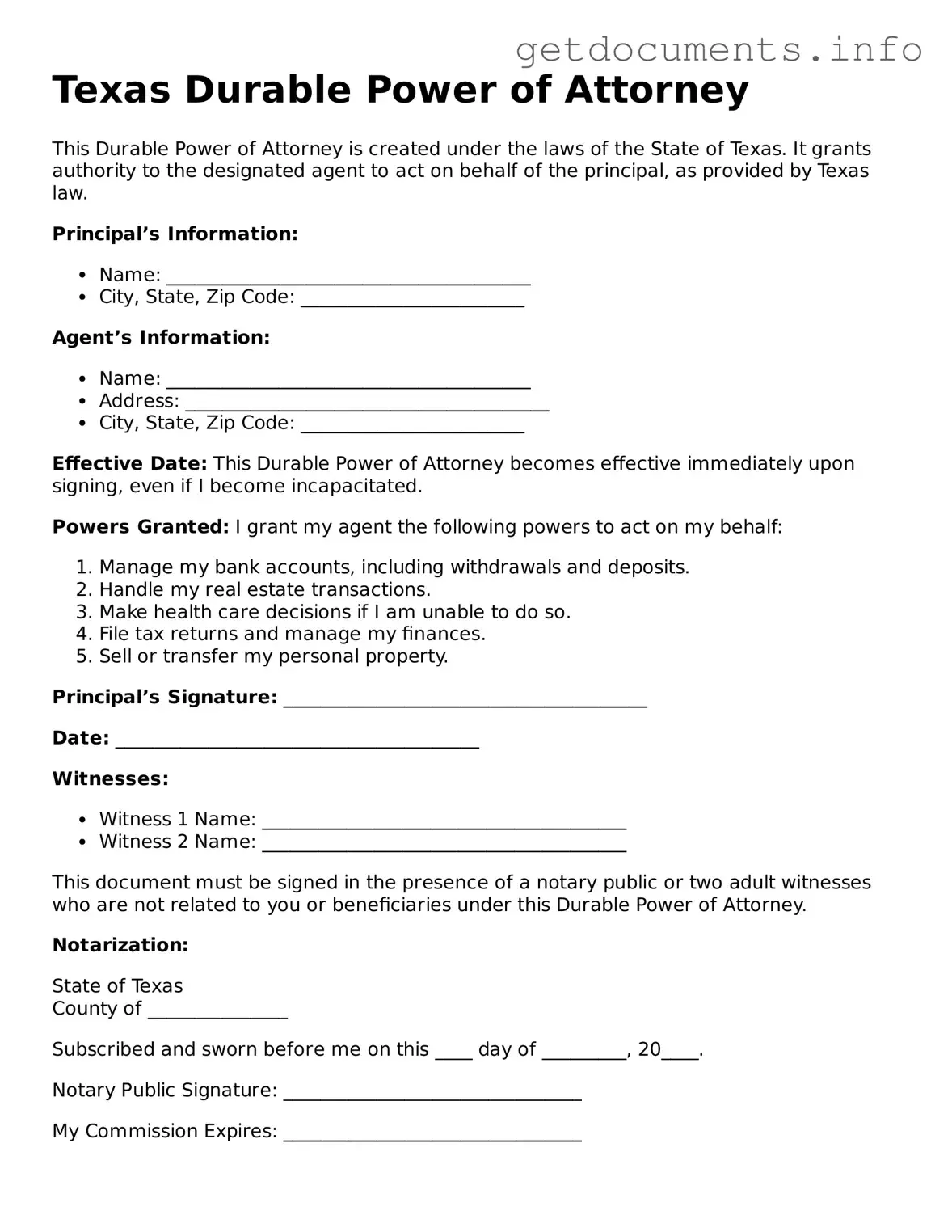Free Durable Power of Attorney Template for Texas
A Texas Durable Power of Attorney form is a legal document that allows an individual to appoint someone else to manage their financial and legal affairs if they become unable to do so themselves. This form remains effective even if the person who created it becomes incapacitated. To ensure your wishes are respected, consider filling out the form by clicking the button below.
Access Durable Power of Attorney Editor

Free Durable Power of Attorney Template for Texas
Access Durable Power of Attorney Editor
Got places to be? Complete the form fast
Fill out Durable Power of Attorney online and avoid printing or scanning.
Access Durable Power of Attorney Editor
or
⇩ PDF File
